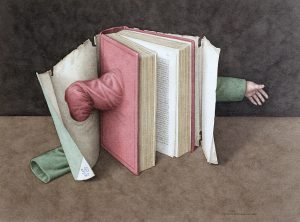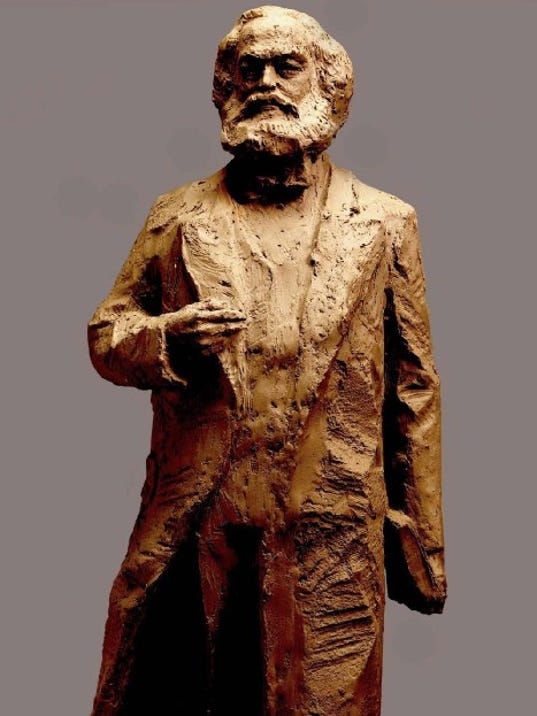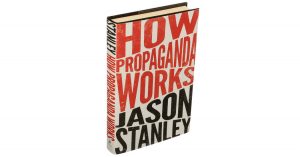Many thanks to Prof. Rabinovitch for bringing this to our attention!

"Accurst Pelagius," from a 17th-century Calvinist print. (Via Wikimedia Commons)
We know from our readings of Augustine's City of God that the saint believed in a world of souls stained by original sin. Over in Britain, however, fifth-century ascetic Pelagius denied that nagging evil lurking within souls, pointing instead to a world born to innocence that may be retained throughout a person's lifetime. In other words, for Pelagius, we are born sinless, and we could live and die sinless if we have a mind to do so. As we can imagine, the two thinkers, Augustine and Pelagius, butted heads more often than not, leading to the latter's excommunication from the Roman Catholic Church for his heresy regarding original sin. Yet the lifestyles of the two (or past lifestyles, in the case of Augustine) were an "ironic inverse," Ed Simon writes in his article "Why Sin is Good." Moreover, at first glance, reformed Augustine and ascetic Pelagius seem to resemble the same ideologies they preached. Yet the most striking difference was who brought about salvation: for Augustine, it is God--only the power of God could have brought about his reform--but for Pelagius, it is the efforts of the individual that determine salvation, not the mercy of God.
But this isn't an article about a fifth-century argument. Instead, Ed Simon translates the debate into 21st-century terms:
In modern parlance, liberals assume that everyone is good and rational but just hasn't read the right Mother Jones article or heard the right NPR broadcast yet. Conservatives adopt a more pessimistic attitude, however, for they assume everyone to be bad --everyone but themselves. Indeed for as much as the exuberant fundamentalist likes to blame the liberal relativist or the New Age pluralist for the abolition of belief in sin, it is the reactionary himself who is arguably most responsible for incubating our new world, where the charge to responsibility is treated as anathema. I have in mind the anarcho-capitalist, the libertarian, those who idolize the myth of the "self-made man" when the only Man who can make Himself is not of this world. These ethical pip-squeaks have erroneously imagined that anyone can pull himself up by his bootstraps, or by his jackboots as the case increasingly seems to be. Let us not pretend that there is anything "Christian"in a worldview that lets children without insurance die or that is fine with men and women starving to death in the richest nation in history.

St. Augustine by Carlo Crivelli (c. 1435-c. 1495)
Simon doesn't say that one side represents Pelagius and the other Augustine; it is far more complex than that. Instead, he says, "belief in original sin keeps one honest, because you know you at least share a propensity to error with everyone, no matter how low." When a person believes that it is through one's own volition that one can achieve salvation, or become a "self-made man," to use contemporary terms, that sort of ideology breeds arrogance and resentment. After all, what need is there for humility in a faultless human being? For Simon, "I'd rather have someone with an awareness of his own inborn shortcomings occupying the highest position of power than someone who believes he never makes mistakes." Yet we're all guilty of Pelagianism, so much that it is "unofficially the central heresy of our modern age." (Even Pelagius's own teaching that "it is possible to do anything which one really wants to do" recalls many a Facebook post.)
So what use does original sin have today, after so many ideologically utopian children of the Enlightenment have rejected Augustine in favor of the perfectibility of society and man through reason, whether through socialism or libertarianism or fascism? What use do we have for the arguments between Augustine and Pelagius? ... For them, the universe contracted in on itself, Pelagius' Britain separated from Europe. To make the parallels any more obvious would be heavy-handed (and we mustn't be that). ... To be heavy-handed may not be a sin, but what is, is the absurd avarice which leads to the denial of evidence that an Antarctic ice shelf bigger than Rhode Island is about to break off into the ocean due to human-generated climate change, even as the former CEO of Exxon and the current Secretary of State, as well as his boss, the leader of the "free" world, both deny that global warming is real. Sinful is that the eight richest men in the world have a combined wealth equal to the bottom half of the entire planet. Sinful is that black mothers and fathers have to wonder if their children will be murdered, and the knowledge that the perpetrators of those murders will often not be brought to justice. Sinful is that for a shamefully large percentage of the Republic the assertion that Black Lives Matter is somehow debatable.
And so on. The problem remains, however, that people simply don't like to be accused of sin. This fact doesn't make the realities of the world any less true, Simon retorts. The solution, he says, is "left Augustinianism," an ideology that addresses the "consumption beyond reason" and the immense immorality that "can influence politics." It means an acknowledgement of sin, of avarice, of selfishness, even in a secular world, not only in the world but in ourselves. After all, "sin"--or evil, if that word strikes you better--"like life, is not our fault --but it is our responsibility."
Read the rest of Ed Simon's article on Marginalia here.













